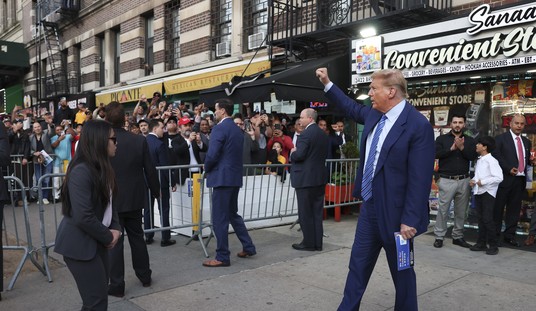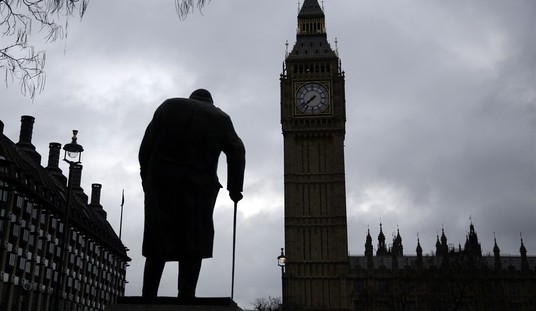Yesterday was William F. Buckley Jr.’s 87th birthday. He did not, alas, live to enjoy the day, having died, age 83, in 2008. Nevertheless, yesterday found me pausing to remember Bill and give thanks for his friendship. There are at least a few readers, I suspect, who will be interested in what I wrote for a conference about “The Catholic Bill Buckley” at the Portsmouth Abbey School a year or so after his death. Be forewarned: there’s much more about the Latin Mass than about politics in what follows. Here is what I said:
In the capacious personal Index Locutionum Prohibitorum of William F. Buckley Jr., I suspect that most depressing entry was one that will be familiar to anyone who has been exposed to the Catholic liturgy in its contemporary, which is to say in its pop-populist, manifestation. I mean, of course, the chilling ten-word enjoinment: “Let us all give each other a sign of peace.”
That oleaginous hebdomadal injunction was possibly even more distasteful to Bill than another common offender, “Why don’t we skip drinks and go directly into dinner?”
You didn’t often see Bill Buckley nonplussed. But his famous, day-brightening smile would first falter, then stiffen into a melancholy rictus of foreboding when he encountered, without preparation, the suggestion that the evening repast, or even the afternoon one, should commence without the accustomed libation and liquid goad to conviviality. I confess that I was at one with him about that. He always, I think, regarded it as something of an ambush and would gaze about with a sad, interrogatory look that clearly said, “Why didn’t someone warn me about this?” Fortunately, it didn’t happen often, and never, I’d wager, twice in the same establishment.
More inescapable, alas, was the liturgical deformation I mentioned above. I sometimes wonder whether the “sign of peace” routine wasn’t contrived by some hardened enemy of the Church. Perhaps it was the same cabal responsible for the new habit of applauding the priest at every opportunity. Or possibly it was the author of The DaVinci Code.
At any rate, the sign-of-peace wheeze is a supremely effective prophylactic against concentration, part of what Bill, in an essay on the end of the Latin Mass, called the “fascistic static” of the contemporary Mass. We approach the most solemn part of the ceremony. A communal recitation of the Lord’s Prayer quietly affirms the individual’s place in the congregation without trespassing upon the essential privateness of the moment. Then, Pow, we’re enjoined to abandon that prayerful solicitude and take a few moments to press the flesh with the circle of random churchgoers who just happen to be in our vicinity. Would a fire drill be any more effective in disrupting the mood appropriate to the celebration of the awful mystery of the Mass than that misguided exercise in demotic bonhomousness?
I raised that complaint one summer day several years ago when Bill and I were sailing on Long Island Sound. Soon thereafter, he sent me an email with what he rightly described as an extraordinary invitation. I live in CT not far from Stamford, where Bill lived. His invitation was to join him and three or four other souls for Sunday Mass in a chapel attached to a local church. It transpired that, for a decade or more, Bill had contrived to have Latin Mass in the Tridentine rite said there by a friendly priest who lived in a nearby town.
In his invitation, Bill described the performance as “faintly against the rules.” I believe I am correct in saying that, when he embarked on these semi-private celebrations, there was nothing at all faint about the transgression. The prejudice against the traditional Latin Mass has weakened in recent years, but at the time the prohibition was unmistakably distinct. It was not, however, beyond appeal, since Bill managed to receive official approval, if not quite an official blessing, for his weekly convocations.
There were many things that Bill liked about the arrangement. No sign of peace, it goes without saying. And there was also the majesty–and, for someone of Bill’s generation, the comforting familiarity–of the Latin language. Somehow, “Credo in unum Deum Patrem omnipotentem” has a grandeur that the vernacular lacks. And the traditional liturgy itself has a force, logic, and stateliness its successor fails to achieve. Ad Deum qui laetificat juventutem meum–To God who imparts joy to my youth: that formula, repeated several times at the beginning of the Mass expresses an acknowledgment of, and gratitude for, God’s grace that is missing from the contemporary liturgy. I think Bill cherished that opportunity of thanksgiving.
There were other things Bill liked about his private Mass. When he first issued the invitation, he lamented the lack of music but advertised as selling points that the Mass was “of course without homily” and “lasts exactly one half hour.” It did, too. The late, lamented Fr. Kevin Fitzpatrick, who died last July at the absurdly young age of 52, managed the journey from opening bells to donning the biretta after prayers at the foot of the altar, in anywhere from 27 to 36 minutes. Not, of course, that I always kept track. I am just reporting the figures. Some people I’ve mentioned this to are slightly taken aback that a devout Catholic such as Bill would count brevity among the advantages of a Mass. They shouldn’t have been.
I’ll come back to some reasons why in a moment. For now, I want to take a moment to pay grateful tribute to Bill for including me and my wife in that refuge from the handshaking-sign-of-peace brigade. For some 6 years, we joined him most Sundays in that little chapel next to St. Mary’s. If Fr. Kevin were unavailable one week, we’d often go to another local church. We soon added the secular ritual of repairing after Mass to Bill’s house on Wallack’s Point where he and my wife would play duets on the piano or harpsichord. Then, often with Bill’s wife Pat, we would convene for preprandial refreshment which sometimes stretched into watching 60 Minutes and dinner.
My last meeting with Bill, on Sunday February 24, was at Mass. Though we had planned to go back to his house as usual, he was too weak for any conviviality. He was, however, looking forward to an evening of piano music, followed by dinner, at his house a few days later. I spoke to him about it Monday night. Our mutual friend Larry Perelman was scheduled to play Beethoven’s Diabelli Variations for a small group on Wednesday February 27. I had a call from Bill’s longtime friend and assistant Linda Bridges about 10 o’clock that morning. Bill had died earlier that day in the Buckley equivalent of the saddle: sitting at his desk in his study, computer humming, papers and books for a dozen projects piled up around him.
I said I would return to the question of why Bill counted the brevity of Fr. Kevin’s Mass an advantage. It had, I think, something to do with Bill’s understanding of prayer and his appreciation of the gift of time.
Bill was the opposite of ostentatious in his religious observances. But any close friend could see that prayer occupied an important place in the spiritual economy of his life. I think he would have liked what the novelist Anthony Trollope had to say about such matters: In the late 1850s, Trollope wrote that “A man in his short sojourn here has mainly three things to do; and he should endeavor to do them all well. He has to say his prayers, he has to earn his bread, and he has to amuse himself.”
I suppose we might cavil over the deflationary phrase “amuse himself”–perhaps “engage” or “occupy” would have been better–but in essentials, I think Bill would have smiled on Trollope’s enumeration of duties. And it was the prelude, the recognition that our sojourn here on earth is ineluctably short, be it full of years or, like that of Lessing’s son, numbered in hours only, that distributes weight to the obligations articulated.
Pascal gave classic expression to the unsettling side of this phenomenon. “When I consider,” he wrote, “the short duration of my life, absorbed by eternity before and after–memoria hospitis unius diei praetereuntis–the little space I fill, and which I see swallowed up in the infinite vastness of spaces that I do not know and that do not know me, I am frightened and astonished by seeing myself here rather than there, as there is no reason why I should be here rather than there, or now rather than then. Who put me here? By whose order and guidance were this place and time assigned to me?”
Pascal expresses the discomfiting aspect of this humbling recognition, the side that pushes people into graduate seminars in philosophy and the therapist’s couch. Bill did not have much time for this allotrope of existential anxiety. He recognized, as he put it in his magnificent account of his visit to Lourdes, that “from the day of birth, we are on our deathbed.” But if he found in it a private inspiration to prayer, he publicly embraced it as a goad to action and enjoyment, not paralysis. His focus was adamantly outwards, blissfully with the particularities of his latest adventure. Socrates may or may not have been right that “the unexamined life is not worth living.” Bill indisputably demonstrated that the unexamined world just won’t cut it. “The entertainment committee,” he liked to say, “never sleeps.”
Anyone who knew Bill knew that he was gloriously impatient. But his impatience was of a piece with another quality: his irrepressible curiosity about the animating mechanics of the world around him. This impetus percolated through the fibers of his being, right down to the filaments of his literary style. Bill’s style of writing was at once seductively confidential–he always seemed to be writing for you–and magnificently selfless.
Bill’s love of gadgets has been often remarked. In many ways, he regarded the entire world as his gadget, and he never considered a gadget fully mastered until he had both plumbed its intricacies himself and anatomized them for his chosen readership. His writing was didactic without didacticism. Sailing. Skiing. Playing the piano or harpsichord. Learning celestial navigation. Decisions about word usage or on-line dictionaries. Animadversions about the habit of serving a salad course at public functions. The particular virtues and defining idiosyncrasies of friends, colleagues, debating partners, even pets. He writes an essay about the life of a public speaker, and you do not simply eavesdrop on a notable practitioner of that art, you feel its rewards–and its rigors–from within. You also get passels of valuable practical advice. Specify, when arranging for someone to meet you, a slightly unorthodox time: your ride to the airport is more likely to be punctual if you say 7:35 instead of 7:30. (“If you were back at the CIA,” Bill revealed, “you’d say 7:33.”) When you arrive at an untested lecture venue, be blunt: “I see dinner is at six. Will they be serving wine?”
Emerson, who wasn’t wrong about everything, devoted a book to Representative Men, men who epitomized some essential quality: Shakespeare; or, the Poet; Napoleon; or, the Man of the World; Goethe; or, the Writer. Bill was, in Emerson’s sense, a Representative Man. One cannot quite imagine Emerson getting his mind around a character like William F. Buckley Jr. But if one can conjure up a less gaseous redaction of Emerson, one may suppose him writing an essay called Buckley; or, the Conservative.
I hasten to add that by “conservative” I do not mean any narrow partisan affiliation. Yes, Bill was known above all as a conservative: the man who did as much as anyone to rescue American conservatism from irrelevance. That’s all very well, but unfortunately the term “conservative” (like its opposite number, “liberal”) has degenerated into an epithet, positive or negative depending on the communion of the person who wields it, but virtually without content.
Being conservative may commit one to certain political positions or moral dogmas. But it also, and perhaps more importantly, disposes one to a certain attitude toward life. The 19th-century English writer Walter Bagehot touched upon one essential aspect of the conservative disposition when, in an essay on Scott, he observed that “the essence of Toryism is enjoyment.” Whatever else it was, Bill’s life was an affidavit of enjoyment: a record of, an homage to, a life greatly, and gratefully, enjoyed. What delight he took in–well, in everything. Playing the piano or harpsichord, savoring a glass of vinho verde, dissecting the latest news from Washington, inspecting with wonder the capabilities of email and internet service on a Blackberry handheld.
At the center of Bill’s conservatism was the subject of this conference: his Catholicism. Our secular age is unfriendly to Catholics, to religion generally, but the irony is that secularists are often less jubilantly worldly than their Jewish and Christian compatriots. “God made the world and saw that it was good.” That bulletin from Genesis might have been the motto of his life. He certainly did everything he could to broadcast it among his many friends. I have never known a more generous person. I do not mean only materially generous, though Bill’s largesse in that department was legendary. I mean spiritually, constitutionally generous as well.
Bill’s generosity was perhaps most solicitous in matters touching on religious faith. I think of his account, alternately moving and amusing, of the last days of his National Review colleague Frank Meyer. In his last illness, Meyer struggled with the momentous decision of whether to convert to Catholicism. Bill was a tireless emissary between Meyer and various confidantes. Bill reports that Meyer, from his bed of woe, complained that “the only remaining intellectual obstacle to his conversion was the collectivist implication lurking in the formulation ‘the communion of saints’ in the Apostles’ Creed.” Two days before the end, Meyer somehow overcame that final obstacle, partly, I like to think, with the help of Bill’s armory of arguments.
Another anecdote: everyone knows that Bill commanded a formidable vocabulary. It was significant, therefore, that he should have telephoned us once in search of a word. “It means taking pleasure in the misfortune of others,” he said to my wife. “Schadenfreude?” she ventured. “That’s it!” he said and rang off. How perfectly Buckleyesque that he should have forgotten it. It named an emotion that was as foreign to him as joy was native.
My point is that Bill Buckley was an affirmative, not an apophatic, character. A few years ago at Easter, I wrote a brief essay for my weblog about that most mysterious threshold of transcendence, time. I began with St Augustine, who famously observed in the Confessions that “So long as no one asks me I know what it is. But as soon as I try to say what time is I am baffled.”
Einstein said that time is what the clock measures–true enough, but not obviously helpful in addressing the bafflement Augustine named. Still, implied by Einstein’s pedestrian definition is an awful fact: that time passes, sweeping all that it “contains”–if “contains” is the right word–before it.
In one tantalizing passage Augustine suggests that time may be “extension of the mind itself.” Whatever else that might mean, it pays obeisance to an oft-noted fact about our experience of time: that it is deeply implicated with the movements of our mind, that it differs radically from one moment, and one phase of life to the next.
In a used book shop somewhere a couple of years ago I picked up a book enticingly called Why Life Speeds Up as You Get Older. It’s by a Dutch psychologist whose name I cannot pronounce, but which looks (more or less) like “Dracula.” It is full of interesting facts and speculations about (as the book’s subtitle puts it) “how memory shapes our past.” (How indeed: “Memory,” Dracula quotes a Dutch aphorist as saying, “is like a dog that lies down where it pleases.”)
Easter, whatever else it is, is a festival about time’s passing–taking that phrase in all the rich multiplicity implied in “passing.” Dracula’s book presents lots of fascinating psychological case studies. Much briefer, yet unaccountably more poignant, is a little poem I discovered in one of John Julius Norwich’s Christmas Crackers. It is, he tells us, inscribed on the pendulum of a clock in a church in Kent.
When as a child I laughed and wept
Time crept.When as a youth I dreamed and talked
Time walked.When I became a full-grown man
Time ran.And later as I older grew
Time flew.Soon shall I find when traveling on
Time gone.Will Christ have saved my soul by then?
Amen.I sent my little reflection on time, including that poem, to Bill, and he responded acknowledging the poignancy of the sentiments expressed. During that last year or so of his life, I suspect Bill’s quotidian attitude towards time took on a darker hue. But eschatologically, I like to think, it remained gloriously affirmative.
A few years ago–no, it was really a couple of decades ago: you see how time speeds up as you get older–I went to an exhibition of art from the Vatican at the Metropolitan Museum of Art in New York. It was a splendid exhibition. Among the more memorable works was a tapestry based on cartoons by Raphael. They portrayed the works of time. Traditionally, time is most often presented as the enemy of achievement: the great all-devouring, preterite: the force that transforms every tomorrow into yesterday and inscribes futility into the core of every ambition.
Time does have that quality. But to focus exclusively on the world-consuming quality of time is to make the mistake Macbeth made in his famous tomorrow and tomorrow and tomorrow speech. Raphael presented another, more salubrious, more joyful side of time’s career. For time is not only the grave of every hope, it is also the condition of every success. That grain should ripen or love blossom is a gift of time. It is only a version of nihilism that discounts time, the source of every worldly benefaction, for the sake of time the ultimate repository of every merely worldly aim.
I thought about this when, just a few weeks ago, I visited Bill and Pat Buckley’s grave in Sharon, Connecticut. The Buckley family plot is in the old Catholic cemetery down in Sharon valley, the unfashionable, working-class part of that tony town. You drive to the end of the small enclosure and there on the right are the squat granite posts marking out this tiny piece of terminal real estate. The five-foot metal cross that Bill had on his lawn in Stamford stands at the head of the plot and contains Pat’s ashes. Bill is interred below. The day we visited was gloriously bright and balmy: Spring in fullest panoply. But the cemetery was well shaded by a profusion of trees: as tranquil and unhurried a spot as one can imagine. The perfect resting place, I thought, for these two over-energetic, intensely social, souls. The Catholic Bill Buckley was a prodigy of engagement with the world. Now that his pilgrimage is complete, how appropriate that he should repose in this modest, unworldly, self-effacing glen.








Join the conversation as a VIP Member